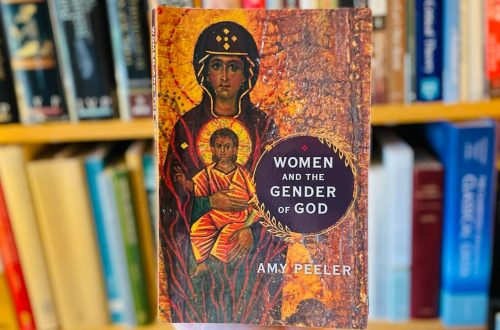 I just got a note from Chris Cowan, associate editor of The Southern Baptist Journal of Theology. It looks like the newest issue is going to be really good. It’s on the atonement, and all the articles favor a penal substitutionary view of the atonement.
I just got a note from Chris Cowan, associate editor of The Southern Baptist Journal of Theology. It looks like the newest issue is going to be really good. It’s on the atonement, and all the articles favor a penal substitutionary view of the atonement.
In his opening editorial, Stephen Wellum writes:
“In the evangelical church today we are in danger of downplaying and even distorting the true meaning and significance of the cross. A number of examples could be given to demonstrate this last observation, but I want to focus on one disconcerting trend that is increasingly occurring in evangelical theology, namely, an effort to reinterpret the cross in non-substitutionary terms. . .
“In the end, understanding the cross in substitutionary terms—indeed penal substitutionary terms—is not only true to Scripture (which is reason enough to embrace it), but it is also essential in helping us grasp better the glorious gospel of God’s sovereign grace.
“But, sadly, this understanding of the cross is being downplayed, caricatured, and even rejected in recent theology—not merely non-evangelical theology where this has always been the case—but now, even within evangelical theology as well. In fact some of the standard objections to penal substitution outside of evangelical theology are now creeping their way into evangelical treatments of the cross. For example, many are now attacking the doctrine as unbiblical because, in their view, substitutionary atonement does not do justice to all of the biblical data. Or, others are saying that substitutionary atonement gives us a merely Western, mechanical, legal view of the cross instead of a more relational view. As many of the authors in this issue of SBJT point out, others are even embracing a typical, yet awful caricature of penal substitution, by arguing that a substitutionary view of the cross does not present us with a loving God but a sadistic one who delights in the abuse of his Son—a kind of divine child abuse. All of these criticisms are groundless and usually refl ect both a caricature of substitutionary atonement as well as the impoverishment of the critic’s own theology and understanding of Scripture. But what is truly unfortunate to note is that all of these criticisms, which have been leveled for hundreds of years by opponents of Christianity as well as liberal Christianity, are now being echoed in some form by many self-avowed evangelicals. In light of these trends, it is necessary”
Wellum is absolutely correct, and that is why you’ll want to get your hands on this issue of SBJT. Here is the table of contents:
“The Atonement in Focus”
Vol. 11, No. 2, Summer 2007
Editorial: Stephen J. Wellum
“Articulating, Defending, and Proclaiming Christ our Substitute”
Gregg Allison
“A History of the Doctrine of the Atonement”
Peter J. Gentry
“The Atonement in Isaiah’s Fourth Servant Song” (Isaiah 52:13-53:12)
Derek Tidball
“Songs of the Crucifi ed One: The Psalms and the Crucifi xion”
Simon Gathercole
“The Cross and Substitutionary Atonement”
Barry C. Joslin
“Christ Bore the Sins of Many: Substitution and the Atonement in Hebrews”
The SBJT Forum
“The Atonement under Fire”




4 Comments
Barry
Wellum’s editorial is fantastic and should stir the mind and soul. He nailed it.
Barry
blackhaw
I think some of the usual problems with the penal substitutionary have merit. I do not reject penal substitutionary atonement (PSA) as one model or metapor but it is not the only one. And I think if one uses PSA as the only or the controlling metaphor then the atonement in all of its fullness is not demonstrated. There is a problem in western conservative eveangelicalism that salvation is looked on too much legalisticly and not relationally. Many western theologians have bucked this trend but in our churches this legal only view of salvation seems to be wide spread.
So the PSA model of the atonement should not be rejected but one should understand its weaknesses and understand that it is just one out of many metaphors of salvation.
BH- Carl Peterson
Rick Garner
Denny,
A reminder to your readers that the Criswell Theological Review, vol 3 no.2 Spring 1989 addresses this issue with a debate between Drs. Paige Patterson and Fisher Humphreys. It’s worth a quick read.
Theodore A. Jones
If there are models of why Jesus has been crucified each with associated value then it is not true of there only being one small narrow gate into the kingdom of God. This is your first major problem with the theories of penal and substitutionary atonement. Your second problem is only a few ever find the small narrow gate. But since there are models to put on each side the the scales to contend that one is better than the other. It must be certain, that according to the man that has perfected the only Way for you to get into the kingdom of God, the models assumed to be of value are not the perfected model. Your third problem. For unilaterally these models you value have the suppositional component of expecting a direct benefit from the illegal action of taking a human life in the hope of obtaining a profit. Since God even forbids by law you offering the price you pay to a street walking whore to be offered to him. I am surely certain, unlike you, that that the direct benefit you expect by taking a human’s life, conjured up by the vanity of imagination, is exceedingly much more offensive to God and in contempt of his law than your vain imaginations collectively comprehend. Your fourth problem.
If the taking of Jesus’ life for a direct benefit to obtain the profit of escaping death is rational. Why does a post rationale quoting God’s intent “The guilty will not go unpunished” compliment the quote of Jesus “he will convict the world of guilt in regard to sin” but after his crucifixion? Your fifth problem.
For if it is true that only by the crucifixion of Jesus you have been justified as forgiven as a direct benefit. Why has it been instituted that it is fully necessary for the intrinsic surgical procedure of circumcising the heart as the post procedure for the people who crucified Jesus to become justified? From the content of your models of salvation contending that it is only necessary for Jesus to be crucified for relief of the penalty afforded by law of eternal death, why is it for only them a judicial process is necessary as a post event for justification when they should have obtained the exact same direct benefit you claim to have obtained from God ? Isn’t it true “Christ died for all.”? If it is true, that he by being crucified, took upon himself your sins, penalized in your place, arose from the grave for proof, ascended back to heaven for acceptance; why is it true that exact and true explanation of why Jesus was crucified is even necessary? Could it be that they who crucified the Lord, just like you, have believed the same contradictory opinion of the reason why Jesus has been crucified and it must be corrected to become justified? Yes I say this is true! For the absolute true reason of why Jesus has been crucified was first explained to them.
Because when the Lord ascend back into heaven he was made the new high priest to enter the sanctuary of his God to rest from the ordeal of having his bloodshed as the basis to institute the addition of one word to the law of God. So that God by his promise and by his spirit would be enabled to make the Lord’s enemies a foot stool for his feet. Regarding that the crucifixion of Jesus of Nazareth is the sin of murder caused by bloodshed. God having said to Noah “and from each man too I will demand an accounting for taking the life of your fellow man” by bloodshed. God has made it fully certified that by the deliberate disobedience of any of his rules of law it certifies that the deliberate disobedient will be punished by eternal death and there are no exceptions. Because it is only by deliberate faith to obey this one word of the new law of faith that justifiable forgiveness of all sins is promised. Making it fully necessary that each man too must by the faith of deliberate obedience confess to the one sin of crucifying Jesus of Nazareth or there is no possibility of forgiveness of any sin. There is no exemption from the penalty of eternal death for anyone other than by the faith to deliberately obey this one word of God. Not obeying this word of law, Repent, confined to the only Way it can be obeyed is a deliberate disobedience. Making forgiveness impossible.
Theodore A. Jones